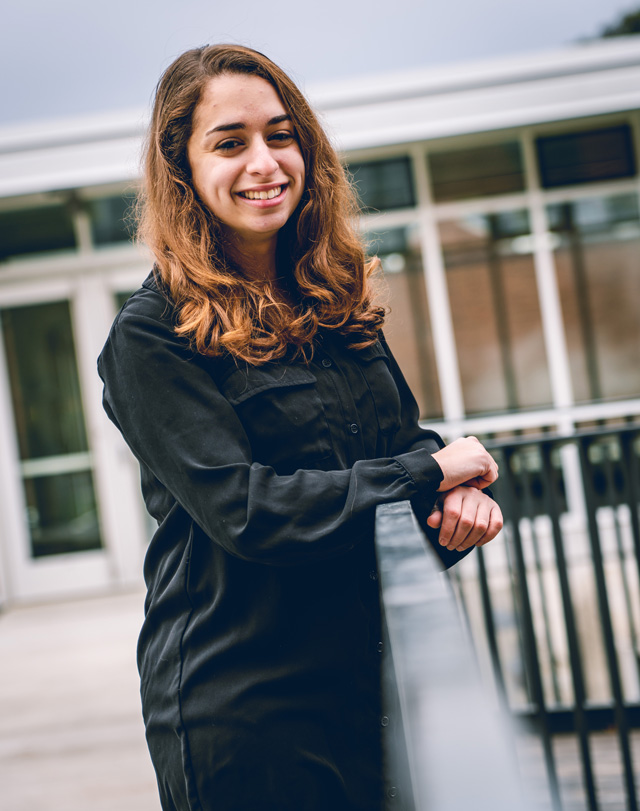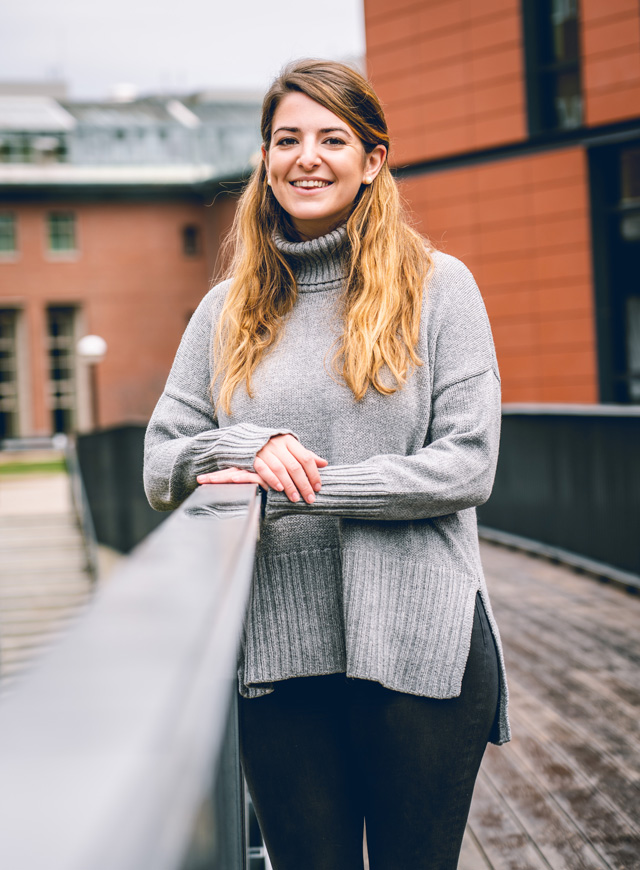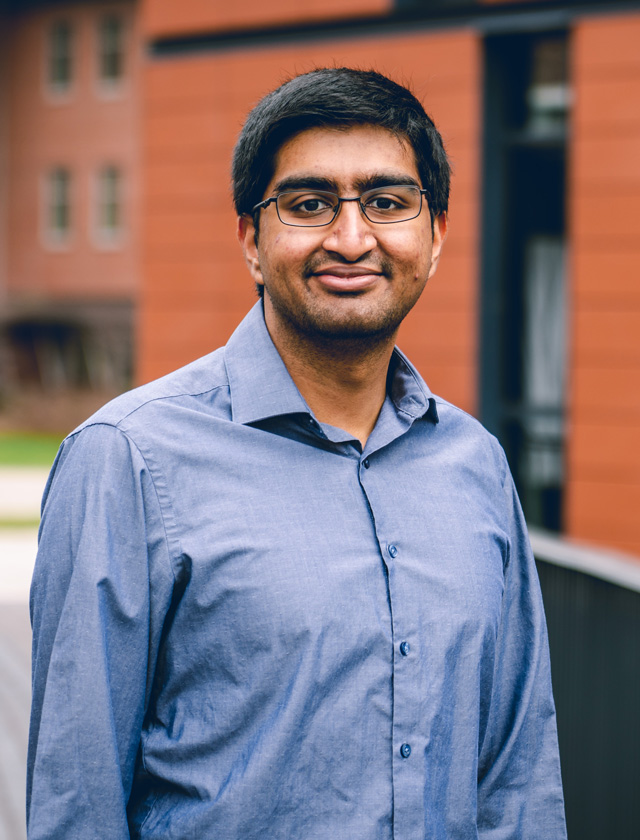Early in her first year at Geisel, Evette Ronner ’23 mused about whether or not she would find disability-related content in the medical school’s curriculum. Her interest in caring for patients with disabilities was both personal—she has a special-needs sister—and professional. If content was minimal, as she suspected, there may be an opportunity for improvement.
Meeting with Adam Weinstein, MD, co-director of On Doctoring, to talk about the curriculum, her suspicions were confirmed. Ronner and three of her classmates began working to integrate content around caring for patients with disabilities into the curriculum.

“When Evette approached me last year with an interest in what and how we teach students about caring for patients with physical and/or cognitive disability—we looked at where content already existed and discussed where and when it could be enhanced,” Weinstein says. They decided the best approach would be a defined curriculum integration, rather than creating isolated learning sessions.
Ronner’s initial idea took shape when she and Linda Morris ’23 partnered on a Making a Difference (MaD) project in the first-year course Patients and Populations: Improving Health and Healthcare that encourages students to address issues that compromise the health of communities and populations, and to tackle problems that may reduce the effectiveness and value of healthcare.
“My younger brother had spinal cancer when he was a child and it left him with various physical limitations,” Morris says. “Navigating the world with him made me aware of how many things in our society are not yet accessible to people with different levels of ability and I found this to be true in medical care as well.”

Ronner and Morris became dedicated to closing this gap within their medical education in learning how to care for those with disabilities—but further research into the subject also revealed gaps in the medical profession.
“There are so many important things to cover in the preclinical curriculum so rather than introducing a lot of new concepts that felt unintentional, we wanted to find natural places where they could be easily integrated,” Ronner says.
Fellow classmates Michaela O’Connor ’23 and Arvind Suresh ’23 share Ronner and Morris’ interest in improving curriculum content around caring for patients with disabilities. When the Patients and Populations course concluded, the quartet turned the MaD project into a formal effort with larger goals. Because medical students rarely have an opportunity to interact with patients with disabilities until their clinical years, the team felt it was important to become familiar with these concepts early in their journey to becoming complete physicians.

Like her classmates, O’Connor believes if medical students do not learn how to care and advocate for patients with disabilities at the beginning of their training, “then we will continue to perpetuate inequities that these patients experience in the healthcare system.” O’Connor’s older brother had cerebral palsy. Her parents had an intimate understanding of the healthcare system and were able to advocate for her brother. However, O’Connor believes that this burden should not fall on patients and their families.
Suresh’s interest was deeply personal too—he has been living with a speech disorder since childhood. During his first year at Geisel, he volunteered at the Spark Community Center in Lebanon, NH, where he says he was privileged to develop close relationships with adults living with disabilities. “The center was an open space for individuals to engage in activities with each other, and I was struck by how open everyone was in sharing their personal story with me and talking about how they advocated for themselves during medical appointments,” Suresh says. “The experience of living with a disability can be isolating when you feel misunderstood—our goal is to empower medical students to make positive contributions to the care of these patients as part of the medical team.”

As they began moving forward, the team again reached out to Weinstein in Spring 2020. “We thought this was key curricular content important to integrate because students and physicians in all fields care for patients with disability,” Weinstein says. “An understanding regarding the different types of disability and how best to support patient needs, whether it’s assisting the patient onto an examination table, counseling about healthy lifestyle approaches, or recognizing how an illness may present differently in a patient with disability is essential to providing the best possible care to all patients.”
Encouraged to think broadly about different ways to integrate disability education into the curriculum at multiple time points across all four years, Ronner, Morris, O’Connor, and Suresh worked with Weinstein, along with Roshini Pinto-Powell, MD, co-director of On Doctoring, and David Mullins, PhD, associate dean of basic science integration, throughout the summer—making additions to the On Doctoring Year 1 iBook and clinical reasoning cases. They also organized a patient panel for individuals living with Trisomy 21 (Down Syndrome) as part of the Fall 2020 Foundations course with the help of course director Lawrence Myers, PhD, and Jillian Rork, MD, assistant professor of surgery.
The four students then organized and are now leading a Disability Advocacy Group to collaborate with Geisel students across all years to develop creative ways of incorporating further education about caring and advocating for patients with disabilities both at an interpersonal and policy level into the curriculum. They are also working with Mullins and the race and health equity longitudinal curriculum implementation team to identify additional opportunities for disability-related education for all courses in the preclinical phase.
Working with my classmates has been inspiring, Suresh says, “it is powerful to see just how dedicated we all are to this topic.”
Feedback from first-year students has offered additional improvements for next year, but they also admit the additions to the iBook made them rethink their assumptions and implicit biases about persons with disabilities—a gratifying outcome for Ronner, Morris, O’Connor, and Suresh, who are encouraged by the number of medical students who want to contribute to this effort by adding their own voices and perspectives.
“It’s always a pleasure to collaborate with students on curricular projects like this,” Weinstein says. “Between their past personal and professional experiences, and lived experience of the current curriculum, student engagement and assistance in curricular projects typically leads to insightful and impactful changes. Even though Evette and her colleagues are still in their second year of medical school and have not finished Phase 1 of the curriculum, their input to enhance disability content in all of Phase 1—which includes both Year 1 and Year 2 of the Geisel curriculum—has been valuable.
“They have been and will continue experiencing some of these innovations in class this year and their feedback and collaboration will be instrumental in future improvements.”